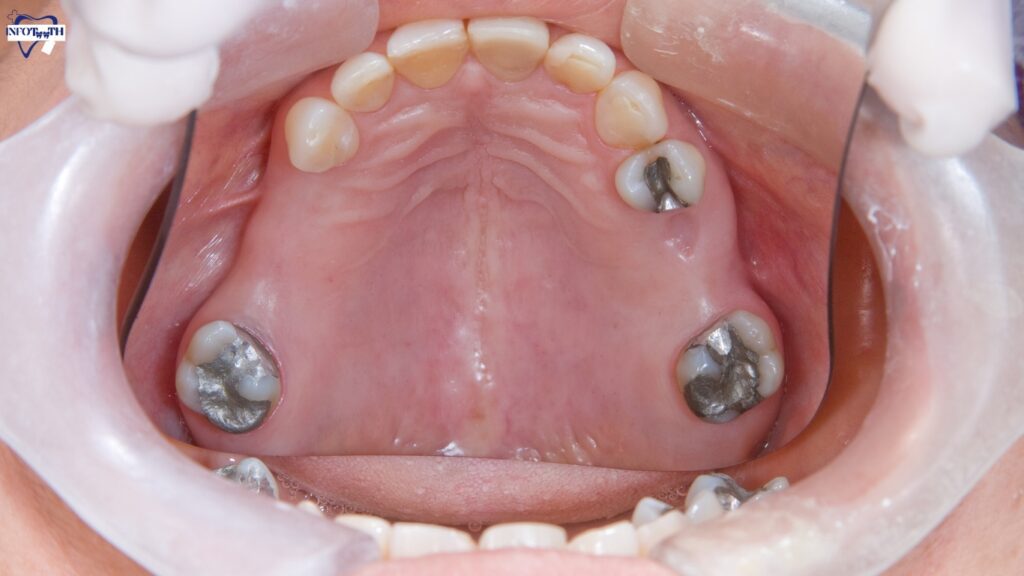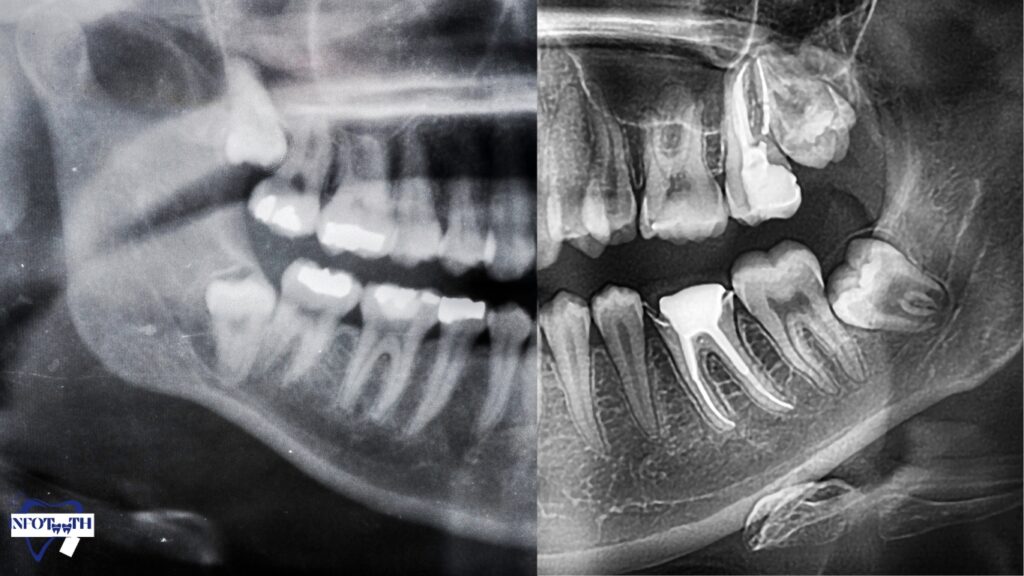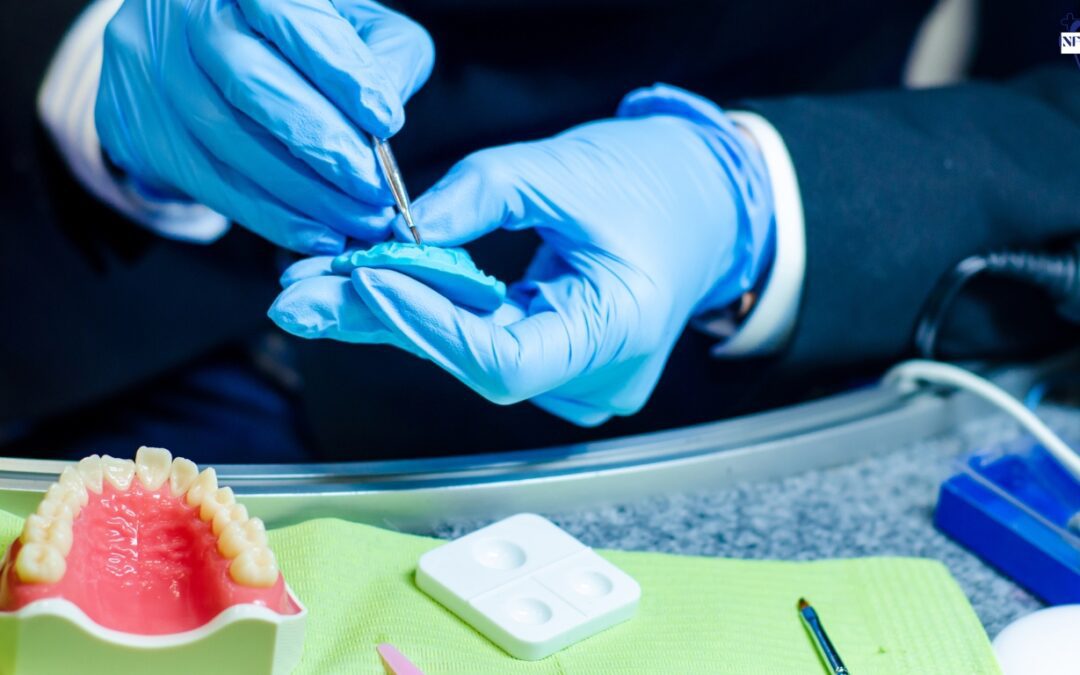Starting the life-changing process of full teeth reconstruction opens doors to improved oral health and a restored smile. We will explore the reasons for choosing full teeth reconstruction, common dental issues it treats, and available procedures as we delve into the details of this extensive process in this blog. Come along with us as we explore the route to regaining a self-assured smile and better dental health overall.
Table of Contents
What Are The Causes Of Full Teeth Reconstruction?
There are many different reasons why full teeth reconstruction may be required, including a variety of dental conditions that can have a serious negative effect on a person’s oral health. Severe decay and cavities are major causes of full teeth reconstruction. The tooth structure may sustain significant damage over time as a result of neglect or subpar dental care, requiring a thorough reconstruction to restore both form and function.
Another significant factor in the need for full teeth reconstruction is gum disease. Failure to treat periodontal problems can result in the loss of bone and gum tissue, which support the teeth. Thus, people with advanced gum disease may decide to have reconstruction to address the cumulative effect on their oral health.

A third common cause that results in physical damage to teeth that goes beyond cosmetic issues is trauma and accidents. Traumatic events can require complete dental reconstruction in order to correctly restore and repair damaged teeth, ranging from fractures to dislodgment.
The reasons above demonstrate the complexity of dental problems that can influence the decision to have all teeth restored. Those who are dealing with these issues must seek prompt, expert dental care because early intervention frequently reduces the amount of reconstruction that is necessary. By being aware of these factors, people can take charge of their oral health and start a customized path to a complete and self-assured smile.
What Are The Types Of Full Teeth Reconstruction Procedures?
Full teeth reconstruction includes a range of treatments meant to improve function and appearance while also restoring dental health. Comprehending the various reconstruction techniques is essential for those considering this life-changing experience.
Dental implants:
A great option for complete tooth reconstruction, dental implants provide a long-term fix for people who are missing teeth. These titanium posts serve as artificial roots that are surgically inserted into the mandible to provide a strong base for crowns or bridges. Implants replicate natural teeth, restoring confidence and ideal oral function in addition to appearance.
Dentures and Bridges:
These are essential components of complete dental restoration procedures. Dentures and detachable prosthetics restore lost teeth while improving appearance and usability. Bridges are dental appliances that are fixed to fill in gaps left by missing teeth, giving the appearance of natural teeth and enabling smooth oral function. For those looking for a full dental restoration, both options provide good options.
Full Mouth Rehabilitation:
A crucial component of full teeth reconstruction, full mouth rehabilitation includes extensive dental procedures that address a range of problems. It offers a comprehensive approach to improving both appearance and functionality by combining restorative and cosmetic procedures. Personalized to meet each person’s requirements, it seeks to restore and rejuvenate the whole dental structure for the best possible oral health.

Selecting the best course of action is dependent on a number of factors, such as the degree of tooth loss, general oral health, and personal preferences. In order to ensure that the procedure chosen fits each patient’s expectations and goals, dental professionals collaborate closely with patients to create personalized treatment plans.
Teeth Reconstruction Before And After
Full teeth reconstruction is a life-changing process that connects dental problems to a radiant, self-assured smile. Prior to starting this journey, people frequently struggle with a variety of issues, such as severe cavities and decay, the effects of gum disease, or traumatic events that have affected their teeth. The “before” stage may include pain, impaired oral health, and feelings of self-consciousness related to the appearance of broken or missing teeth.
But the choice to have all of your teeth restored represents a sea change. The “after” is a striking transition towards oral health and cosmetic rejuvenation, and the procedure is customized to meet each person’s specific needs. To address different issues, dentists use a variety of procedures, including full mouth rehabilitation, dentures, bridges, and dental implants.
Not only is there a noticeable change “after” teeth reconstruction, but there are also notable functional gains. Patients report better speech, better chewing ability, and confidence that has returned. The “after” phase’s radiant smiles are a reflection of the improvement in general well-being.
A complete dental reconstruction has potential, but it must be carefully considered, from procedure selection to financial considerations. Testimonials and success stories from people who have gone through this process act as rays of hope, presenting the amazing “after” in which people regain their oral health, rediscover their smiles, and welcome a revitalized sense of self-worth.
How Bone Reconstruction For Teeth Prepared?
A crucial part of the extensive procedure of full teeth reconstruction is bone reconstruction. Severe dental conditions like decay, trauma, or tooth loss may also harm the underlying bone structure. In these situations, bone reconstruction becomes an essential first step to guarantee the longevity and success of dental implant procedures.

For best results, dental implants—a popular element of complete tooth reconstruction—need a strong foundation. Bone reconstruction is the process of growing or rebuilding the mandible to give implants the support they need. The goal of this procedure, which qualified periodontists or oral surgeons frequently carry out, is to replenish lost bone density and guarantee a solid foundation for the prosthetic teeth.
The success of bone reconstruction is closely related to the success of full tooth reconstruction. Individuals can increase the longevity of their reconstruction and improve the stability of their new teeth by taking care of any bone deficiencies. This feature emphasizes how all-encompassing the dental journey is and stresses how crucial hard and soft tissue restoration is to a thorough and long-lasting improvement in oral health.
Benefits of Full Teeth Reconstruction
Starting a full teeth reconstruction procedure has many advantages that go beyond simple aesthetic improvements to have a significant influence on general oral health and well-being. The restoration of aesthetics is one of the main benefits, giving people a radiant smile and a newfound sense of confidence. Complete dental reconstruction greatly enhances oral function in addition to the obvious benefits. People can chew and speak normally again, which enhances their general quality of life.
Furthermore, complete dental reconstruction is essential for averting future oral health problems. Through a comprehensive approach to treating gum disease, cavities, and severe decay, the reconstruction process stops these issues from getting worse and prevents further complications. This preventive measure not only protects the prosthetic teeth but also maintains the integrity of the neighboring natural teeth.

Don’t undervalue the psychological effects of having all of your teeth restored. People who go through this life-changing process frequently notice an improvement in their self-perception and an increase in self-esteem. Having the confidence to smile without worrying about dental imperfections enhances one’s overall feeling of well-being.
The advantages of complete dental reconstruction also carry over to social and professional spheres of life. A self-assured smile has a good impact on social confidence in general, as well as professional and interpersonal relationships. It becomes evidence of the person’s dedication to maintaining good oral health and exuding energy and positivity.
Conclusion
In conclusion, undergoing a full teeth reconstruction is a transformative process that enhances both appearance and functionality rather than merely being a cosmetic endeavor. People can regain their confidence and enjoy better oral health by treating common dental issues thoroughly and selecting the best procedure based on their unique needs. Choosing to have all of your teeth restored is a big step towards a happier, healthier smile and a better quality of life.
FAQs
Q: Does a full teeth reconstruction hurt?
A: Anaesthesia is usually used during full mouth reconstruction to reduce pain. Although pain during recovery is common, patients now have a more comfortable experience thanks to advancements in pain management.
Q: How much time does it take to recover from a full teeth reconstruction?
A: Following a complete dental reconstruction, recovery times vary but usually last for several weeks. The length of time depends on factors like the selected procedure, personal healing, and post-surgery care.
Q: Are our full teeth reconstruction only possible with dental implants as a long-term solution?
A: Dental implants offer stability and natural functionality, making them a top permanent option for full mouth reconstruction. Although there are alternatives, implants are unique due to their long lifespan and profound effect on oral health.
Q: Is speech and articulation improved by full teeth reconstruction?
A: By restoring the teeth’s normal alignment and functionality, full teeth reconstruction can greatly improve speech and articulation, resulting in better clarity and pronunciation.
Q: Is insurance going to cover a full teeth reconstruction?
A: Insurance plans differ in their coverage of full teeth reconstruction. Even though some policies might only pay for a portion of the costs, it’s important to check your particular insurance terms to find out how much financial support is available.

